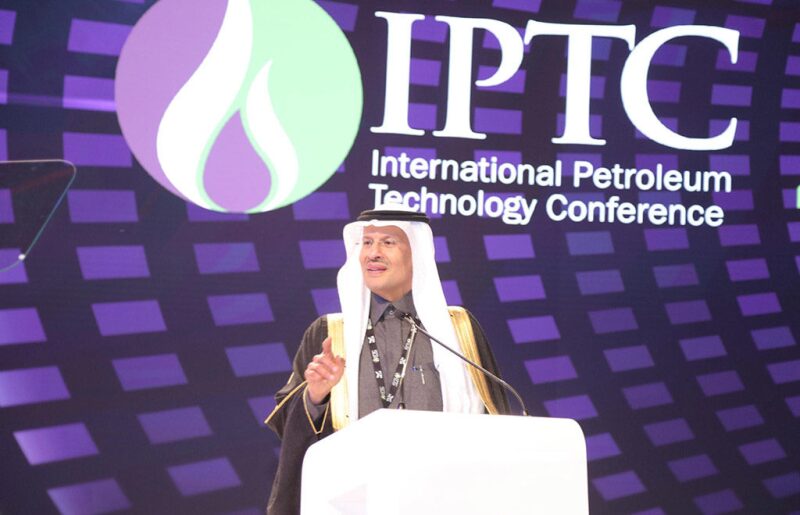Energy ministers and chief executives weighed in on current US/Iran tensions on Monday on the first day of the 12th International Petroleum Technology Conference (IPTC) in Dammam, Saudi Arabia.
This is the first time the multidisciplinary oil and gas conference is taking place in Saudi Arabia.
Saudi Arabian Minister of Energy Prince Abdulaziz bin Salman Al-Saud, speaking at the conference’s opening panel session, said his country and OPEC would work to ensure the stability of the oil market after the US drone strike killed a top Iranian general and Iran responded with an attack on US installations in Iraq. The panel also included the oil minister of Bahrain and the CEOs of ExxonMobil and Total.
Asked by the panel moderator what he thought of US President Donald Trump’s decision to launch a drone strike against Iran’s military leader and the effect it could have on markets, Al-Saud said, “The president can do whatever he wishes. The US is a strategic partner and has a big role to play in security.”
The OPEC-plus group, which will meet again in March to assess the markets, will continue to do what it can to provide market stability, he said, as it has done through the price crash and the US shale revolution. The group has pledged to cut 1.7 million B/D of oil from the market in the first quarter of this year.
“Generally, we don’t like volatility,” he said. The goal of OPEC is to promote the stability of prices, supply, and demand, he added. Without stability, it is difficult for oil and gas companies, which must take a long-term view, to plan investments.
Bahrain Minister of Oil Shaikh Mohammed Bin Khalifa Al Khalifa defended the actions of the OPEC-plus group against critics who said it undermined free market economics. He said that after the global financial crisis of 2008, cheap credit funded the shale revolution in the US. That “induced stimulus” led to an oil glut, which caused the price collapse that began in 2014, he said.
Producers had to respond with a counterbalance, which led to the curtailment of supply by OPEC members and other large producers such as Russia.
“Going forward, all eyes are on US production,” he said, adding that another 1 million B/D increase in shale output would weigh heavily on prices this year. But he said that all indications are that the growth in US shale supply is waning. He said that he even worries that there might be an oil scarcity soon because of the lack of investment in the industry in the past few years.
The subject of US politics came up again in a question about the Democratic candidates for president who oppose hydraulic fracturing. ExxonMobil CEO Darren Woods said the growth in US shale supply has provided tremendous economic benefits for the country, including adding thousands of jobs. Politicians tend to speak narrowly about issues in a campaign but eventually will look “at the bigger picture” if elected and try to strike a balance among competing interests. The disruption to the economy and to individuals that banning hydraulic fracturing would cause is a “natural hedge” against such dramatic change, he added. As for his company, “Our plan is to continue to talk about the fundamentals, what is good for the industry and for the economy,” he said.
In another panel, Saudi Aramco CEO Amin Nasser said the attacks on the company’s facilities in the past year showed the company’s resilience. The attacks forced the shutdown of the facilities, but Aramco recovered fairly quickly, as it restored production to preattack levels within 2 weeks.
Nasser said Aramco has a track record of “being a very reliable supplier” to its customers and the attacks were a testament to its reliability. That reliability, he said, stemmed from three areas: its infrastructure, its workforce, and the way the company manages its resources.
“Our ability to restore a facility is unmatched in the industry,” Nasser said. “It’s a testament to our training, the involvement in emergency response, and the drills we run. Unless you take these drills seriously, you will end up with a disaster. Our emergency response, our highly trained workforce, made it possible for us to restore the facility quickly, and our business continued. Our contractors were ready to execute. Everybody knew what they were supposed to do.”


